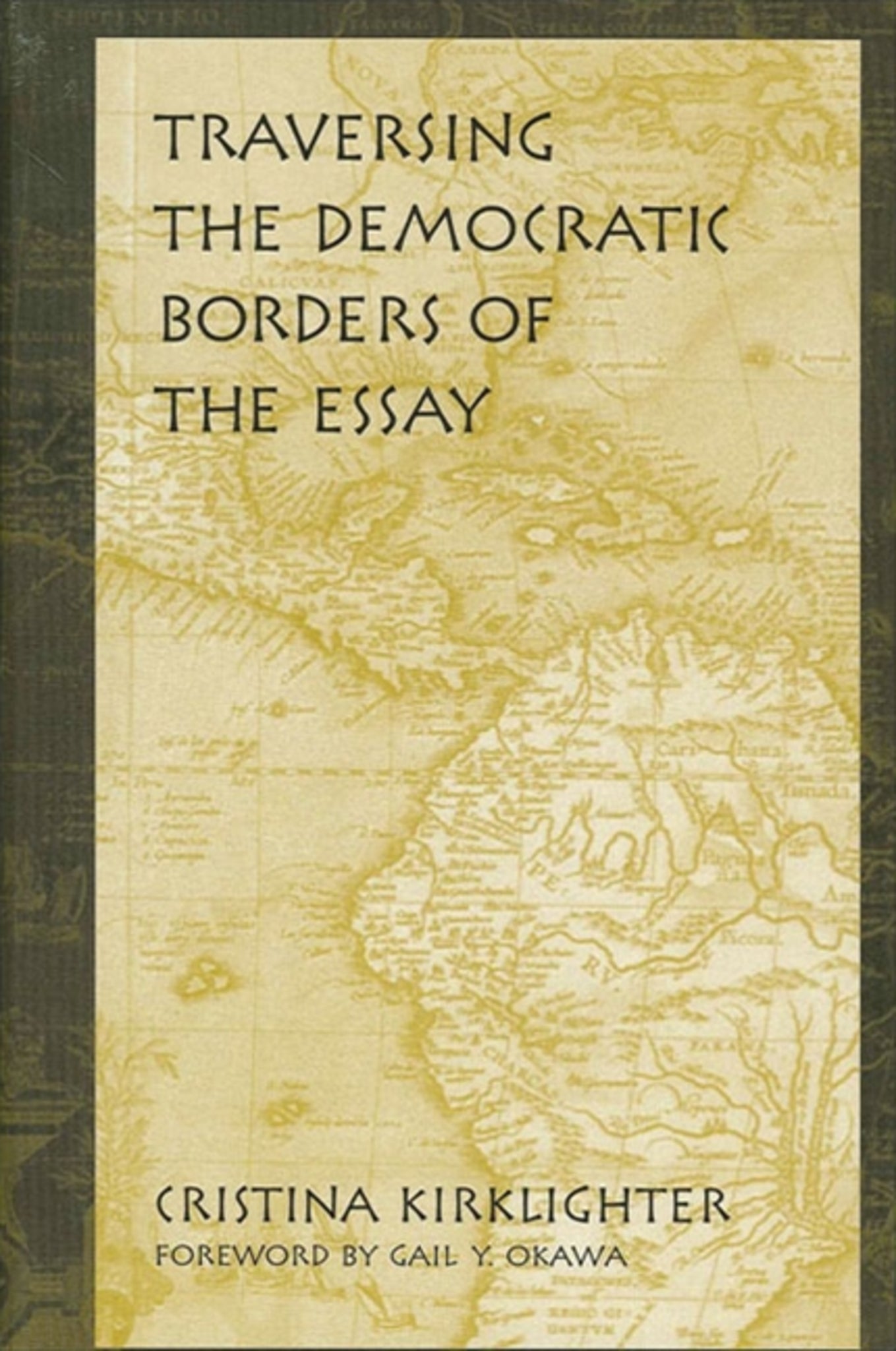We're sorry. An error has occurred
Please cancel or retry.
Traversing the Democratic Borders of the Essay

Some error occured while loading the Quick View. Please close the Quick View and try reloading the page.
Couldn't load pickup availability
- Format:
-
17 July 2002

Extends the borders of essay scholarship by reading Latin American and Latino/a essayists alongside European and American ones.
Scholarship on the personal essay has focused on Western European and U. S. varieties of the form. In Traversing the Democratic Borders of the Essay, Cristina Kirklighter extends these boundaries by reading the Latin American and Latino/a essayists Paulo Freire, Victor Villanueva, and Ruth Behar, alongside such canonical figures as Montaigne, Bacon, Emerson, and Thoreau. In this fascinating journey into the commonalities and differences among these essayists, Kirklighter focuses on various elements of the personal essay-self-reflexivity, accessibility, spontaneity, and a rhetoric of sincerity-in order to argue for a more democratic form of writing in academia, one that would democratize the academy and promote nation-building. By using these elements in their teachings and writings, Kirklighter argues, educators can play a significant role in helping others who experience academic alienation achieve a better sense of belonging as they slowly dismantle the walls of the ivory tower.


"Students and scholars at all points on the theoretical spectrum will find this a stimulating read." — CHOICE
"A rare and engaging book. Kirklighter speaks eloquently and persuasively, from the vantage points of tradition and personal experience, of the essay's power as a more democratic, more accessible, and more inclusive form of scholarly communication." — Xin Liu Gale, author of Teachers, Discourses, and Authority in the Postmodern Composition Classroom
"Written in a clear and accessible style, this book will be of great interest to critics and scholars working in the field of critical literacy and pedagogy, as well as those in the fields of Latino/a and Inter-American Studies." — Santiago Juan-Navarro, author of Archival Reflections: Postmodern Fiction of the Americas (Self-Reflexivity, Historical Revisionism, Utopia)
Foreword
Gail Y. Okawa
Acknowledgments
1. Introduction
The Personal, the Political, and the Rhetorical: Montaigne's and Bacon's Use of the Essay Form
Essaying an American Democratic Identity in Emerson and Thoreau
The Essay as Political/Cultural Critique in Latin America
Achieving a Place in Academia through the Personal Academic Essays of Victor Villanueva and Ruth Behar
2. The Personal, the Political, and the Rhetorical: Montaigne and Bacon's Use of the Essay Form
Brief Biography of Michel de Montaigne
Montaigne's Departure from Traditional Rhetorical Writing
Francis Bacon and the Essay
3. Essaying an American Democratic Identity in Emerson and Thoreau
Ralph Waldo Emerson
Biographical Background
Montaigne, Plutarch, Emerson, and the Essay
The Essay, Education, and the Formation of a U.S. National Identity
Emerson and "The American Scholar"
Henry David Thoreau
Historical and Political Background of Walden
Early Book Reviews of Walden and Its Significance to the Essay
4. The Essay as Political/Cultural Critique in Latin America
Freire's Place in Latin American History
Freire's Social Pedagogy and Its Tie to the Elements of the Essay
Freire's Pedagogical Ties to Self-Reflection in the Essay
Accessible Writing and the Freirian Essay
Freire and the Issue of Spontaneity
The Essay's Elements of Sincerity and Truthfulness in Freire's Writings
5. Achieving a Place in Academia through the Personal Academic Essays of Victor Villanueva and Ruth Behar
Conversations with Victor Villanueva on Bootstraps and His Influence in Rhetoric and Composition
Villanueva's Use of Self-Reflection and Accessibility in Bootstraps
The Movement from Mimicry to Spontaneity in Villanueva's Academic Writings
Sincerity and Acceptance in Villanueva's Scholarship
Ruth Behar and Her Rise to Academic Prominence
Behar's Use of Self-Reflexivity and Accessibility to Reconcile Her Ethnographic Identity in Academia
Spontaneity and the Essay: Behar's Growing Resistance to Becoming a Translated Academic
Behar's Use of Sincere Writing to Uncover Her Truth as an Ethnographer
6. Conclusion
Works Cited
Index



